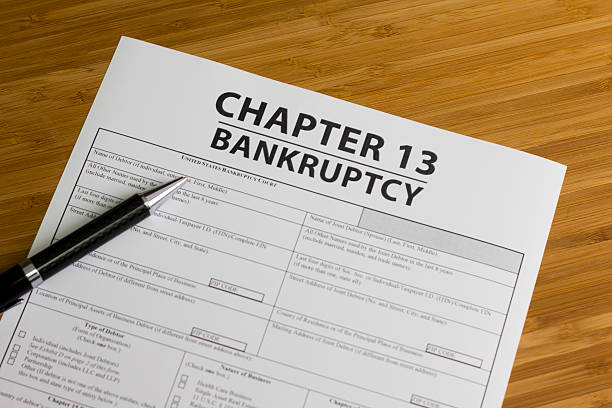How Does Chapter 13 Bankruptcy Work?

Ready to connect with top legal professionals? Get immediate support— Call us at 877-550-8911.
The Role of a Chapter 13 Bankruptcy Attorney
Hiring an experienced Chapter 13 bankruptcy attorney can significantly impact the outcome of your case. These professionals guide clients through every stage of the process, from filing paperwork to representing them in court. Their primary responsibilities include:- Evaluating financial circumstances: Your attorney will review income, expenses, debts, and assets to determine whether Chapter 13 is the best solution. They will also assess your ability to maintain consistent payments over time.
- Preparing and submitting documents: Filing for bankruptcy involves detailed forms and financial disclosures. Errors or omissions can lead to case dismissal, so your attorney ensures everything is complete and accurate.
- Negotiating with creditors: An attorney can advocate for reduced interest rates, lower monthly payments, and extended timelines—relieving some of the financial pressure on the debtor.
- Protecting your rights in court: Your lawyer will represent you in bankruptcy court and at the meeting of creditors, helping clarify your situation and protect your assets.
Eligibility Requirements for Chapter 13 Bankruptcy
To qualify for Chapter 13 bankruptcy, certain criteria must be met as established under U.S. Bankruptcy Code. Here’s a breakdown:- Stable income: Applicants must have a consistent source of income, such as wages, pension, or government benefits. This regular cash flow is necessary to support the repayment plan.
- Debt limits: As of 2023, your unsecured debts must be under $465,750 and secured debts must not exceed $1,395,875. These thresholds are adjusted periodically.
- Credit counseling: Debtors must complete a credit counseling course from an approved agency within 180 days prior to filing. This is a legal requirement that helps ensure you’ve considered all financial options.
- Previous filings: Individuals who have filed for Chapter 7 in the last four years or Chapter 13 in the last two years may not be eligible for another filing right away.
The Chapter 13 Bankruptcy Process
Filing for Chapter 13 involves a structured legal process that includes several stages. A Chapter 13 bankruptcy attorney ensures that all steps are executed correctly:- Filing the petition: The process starts when the debtor files a bankruptcy petition with the court, along with a proposed repayment plan and financial disclosures.
- Automatic stay: Upon filing, an automatic stay is issued, halting collection efforts, foreclosures, and wage garnishments.
- Meeting of creditors: Within a few weeks, the court schedules a meeting where creditors can question the debtor about their finances. Your attorney will accompany you to this meeting.
- Court approval: If the repayment plan is deemed feasible, the court will approve it. The debtor must then begin making payments to a bankruptcy trustee, who distributes the money to creditors.
Benefits of Filing for Chapter 13 Bankruptcy
Chapter 13 offers multiple advantages over other forms of bankruptcy, especially for individuals looking to protect their property while managing debt. Here’s what makes it appealing:- Asset protection: Unlike Chapter 7, Chapter 13 allows you to keep valuable assets like your home or car while catching up on missed payments over time.
- Stop foreclosure and repossession: If you’re behind on mortgage or car payments, Chapter 13 provides an opportunity to stop the foreclosure process and restructure those debts.
- Co-debtor protection: In certain cases, co-signers on consumer debts may also receive protection under Chapter 13, helping preserve personal relationships and financial stability.
- Improved financial habits: The structured repayment plan can help instill better financial discipline, making it easier to budget, save, and avoid future debt issues.
 Challenges and Considerations in Chapter 13 Bankruptcy
Challenges and Considerations in Chapter 13 Bankruptcy
Despite its benefits, Chapter 13 bankruptcy isn’t without challenges. Being aware of them helps set realistic expectations.
- Long repayment period: You must commit to a 3- to 5-year repayment plan, which requires discipline and consistent income.
- Impact on credit: Chapter 13 remains on your credit report for up to 7 years. While this may affect your ability to obtain new credit, making regular payments during the plan can help rebuild your score.
- Not all debts are discharged: Certain obligations, like student loans, alimony, and child support, generally cannot be eliminated. Tax debts may also remain unless specific conditions are met.
- Plan modification risks: If your income changes or you miss a payment, you may need to modify the plan or risk dismissal of your case.
How a Chapter 13 Bankruptcy Attorney Can Help You
The guidance of a bankruptcy attorney is invaluable when it comes to securing the best possible outcome in Chapter 13:- Customized repayment strategy: An attorney will work closely with you to create a plan that reflects your unique financial situation while meeting court requirements.
- Negotiation and representation: They negotiate on your behalf to potentially reduce interest rates and secure more favorable terms.
- Ongoing support: Your attorney will advise you throughout the repayment period, assist with plan modifications, and protect your rights in case of legal disputes.
Frequently Asked Questions About Chapter 13 Bankruptcy
1. How long does Chapter 13 bankruptcy last?Typically, between three to five years, depending on your income and debt level.
2. Can I keep my house and car?
Yes, Chapter 13 allows you to keep secured assets like your home and car while catching up on missed payments through your repayment plan.
3. Does Chapter 13 eliminate all my debt?
No, some debts like student loans and child support usually cannot be discharged, but it can eliminate or reduce unsecured debts like credit cards and medical bills.
4. Will Chapter 13 stop foreclosure?
Yes, filing initiates an automatic stay that halts foreclosure and other collection actions, allowing you time to catch up on missed mortgage payments.
5. Do I need an attorney to file for Chapter 13?
While not legally required, working with a Chapter 13 bankruptcy attorney greatly improves your chances of success due to the complexity of the process.
Don’t wait to secure the legal representation you deserve. Visit Legal Case Review today for free quotes and tailored guidance, or call 877-550-8911 for immediate assistance.



